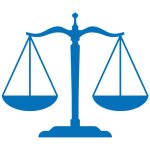Best Discrimination Lawyers in Senegal
Share your needs with us, get contacted by law firms.
Free. Takes 2 min.
Or refine your search by selecting a city:
List of the best lawyers in Senegal
About Discrimination Law in Senegal:
Discrimination in Senegal is illegal and is prohibited by various laws and regulations. The Constitution of Senegal guarantees the right to equality before the law and prohibits discrimination based on race, ethnicity, gender, religion, disability, or any other protected characteristic. Discrimination can occur in various settings, including employment, education, healthcare, and public services.
Why You May Need a Lawyer:
You may need a lawyer if you have experienced discrimination in Senegal and wish to seek legal redress. A lawyer can help you understand your rights, navigate the legal system, and advocate on your behalf. They can also help you gather evidence, file a complaint with the appropriate authorities, and represent you in court if necessary.
Local Laws Overview:
In Senegal, the main laws that prohibit discrimination include the Constitution of Senegal, the Labor Code, and the Law on the Promotion of Women's Rights. These laws provide protection against discrimination in various areas, including employment, education, and access to services. Senegal is also a party to international treaties that address discrimination, such as the Convention on the Elimination of All Forms of Discrimination Against Women (CEDAW) and the International Convention on the Elimination of All Forms of Racial Discrimination.
Frequently Asked Questions:
Q: What is considered discrimination in Senegal?
A: Discrimination in Senegal is any distinction, exclusion, restriction, or preference based on a protected characteristic that has the purpose or effect of nullifying or impairing the recognition, enjoyment, or exercise of human rights and fundamental freedoms.
Q: How can I file a discrimination complaint in Senegal?
A: To file a discrimination complaint in Senegal, you can contact the Ministry of Women, Family, Gender, and Child Protection or the Senegalese Association for the Promotion of Women's Rights (ADEF). You can also seek assistance from a lawyer to help you navigate the complaint process.
Q: What remedies are available for discrimination in Senegal?
A: Remedies for discrimination in Senegal may include compensation for any harm or loss suffered, injunctions to stop the discriminatory conduct, and other forms of relief as determined by the court. The court may also order the responsible party to take corrective action to prevent future discrimination.
Q: Can I be discriminated against based on my disability in Senegal?
A: No, discrimination based on disability is prohibited in Senegal. The Law on the Promotion of the Rights of People with Disabilities prohibits discrimination against individuals with disabilities in various areas, including education, employment, and access to public services.
Q: Can I be discriminated against based on my sexual orientation in Senegal?
A: Unfortunately, discrimination based on sexual orientation is not explicitly prohibited by law in Senegal. However, the government has taken steps to address discrimination against LGBTQ+ individuals, and advocacy groups are working to promote equality and non-discrimination for all individuals.
Q: Can I be discriminated against based on my religion in Senegal?
A: No, discrimination based on religion is prohibited in Senegal. The Constitution guarantees freedom of religion and prohibits discrimination based on religion or belief. Individuals have the right to practice their religion freely without facing discrimination or persecution.
Q: How long do I have to file a discrimination complaint in Senegal?
A: The time limit for filing a discrimination complaint in Senegal may vary depending on the specific circumstances of the case and the relevant legal provisions. It is advisable to seek legal advice as soon as possible if you believe you have been discriminated against.
Q: Can I be discriminated against based on my gender in Senegal?
A: No, discrimination based on gender is prohibited in Senegal. The Law on the Promotion of Women's Rights and other legal provisions guarantee equality between men and women and prohibit discrimination on the basis of gender.
Q: What should I do if I experience discrimination in the workplace in Senegal?
A: If you experience discrimination in the workplace in Senegal, you should document the incidents of discrimination, report them to your employer or human resources department, and seek legal advice. A lawyer can help you understand your rights and options for addressing the discrimination.
Q: Can I be discriminated against based on my race or ethnicity in Senegal?
A: No, discrimination based on race or ethnicity is prohibited in Senegal. The Constitution guarantees equality before the law and prohibits discrimination based on race, ethnicity, or any other protected characteristic. Individuals have the right to be treated fairly and equally regardless of their race or ethnicity.
Additional Resources:
If you need legal advice or assistance regarding discrimination in Senegal, you can contact the Senegalese Association for the Promotion of Women's Rights (ADEF) or the Ministry of Women, Family, Gender, and Child Protection. You can also seek assistance from a local human rights organization or legal aid clinic for support and guidance.
Next Steps:
If you believe you have been a victim of discrimination in Senegal, it is important to seek legal advice as soon as possible. A lawyer can help you understand your rights, explore your options for addressing the discrimination, and guide you through the legal process. Remember that you have the right to be treated fairly and equally, and there are resources available to support you in seeking justice for discrimination.
Lawzana helps you find the best lawyers and law firms in Senegal through a curated and pre-screened list of qualified legal professionals. Our platform offers rankings and detailed profiles of attorneys and law firms, allowing you to compare based on practice areas, including Discrimination, experience, and client feedback.
Each profile includes a description of the firm's areas of practice, client reviews, team members and partners, year of establishment, spoken languages, office locations, contact information, social media presence, and any published articles or resources. Most firms on our platform speak English and are experienced in both local and international legal matters.
Get a quote from top-rated law firms in Senegal — quickly, securely, and without unnecessary hassle.
Disclaimer:
The information provided on this page is for general informational purposes only and does not constitute legal advice. While we strive to ensure the accuracy and relevance of the content, legal information may change over time, and interpretations of the law can vary. You should always consult with a qualified legal professional for advice specific to your situation.
We disclaim all liability for actions taken or not taken based on the content of this page. If you believe any information is incorrect or outdated, please contact us, and we will review and update it where appropriate.
Browse discrimination law firms by city in Senegal
Refine your search by selecting a city.










